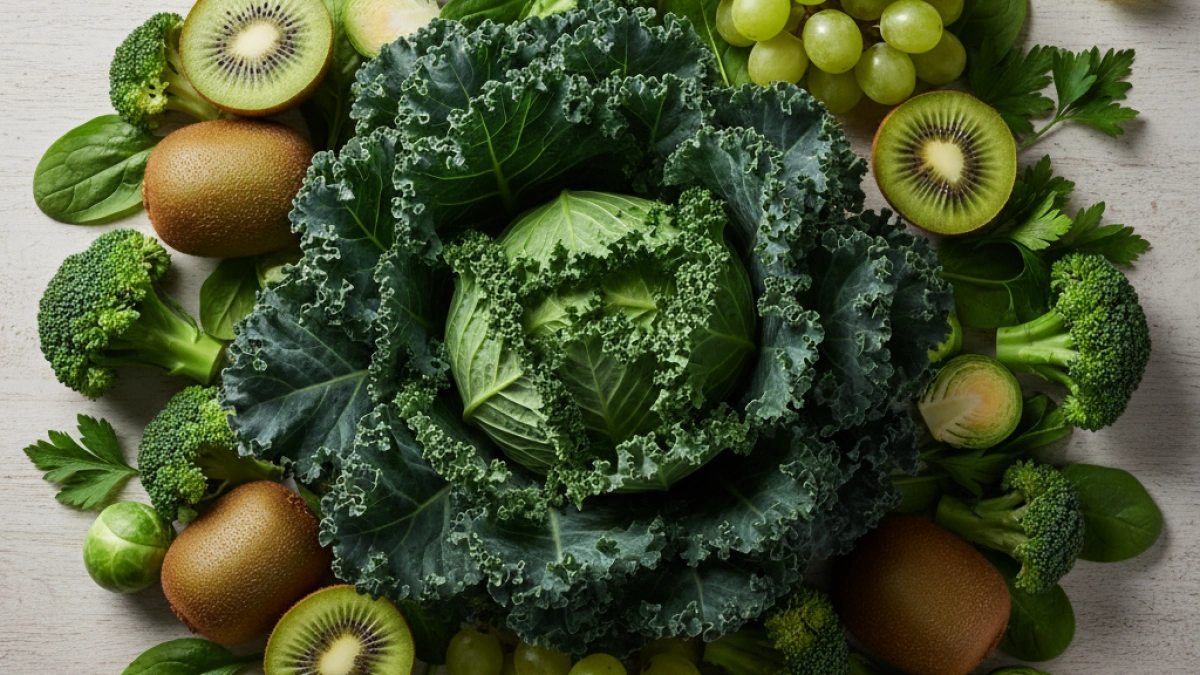Benefits of vitamin K for health and the body

Vitamin K is an essential nutrient that plays a crucial role in various functions of the body. However, many people are unaware of its importance and the benefits it can provide for health. This article explores the main positive effects of vitamin K, its sources, and how it can be incorporated into our daily diet.
What is Vitamin K?
Vitamin K is a group of fat-soluble vitamins that are primarily known for their role in blood coagulation. There are two main forms of this vitamin: K1 (phylloquinone), which is mainly found in green leafy vegetables, and K2 (menaquinone), which is produced from certain animal-based foods and some fermented foods. Both are essential for maintaining optimal health.
Benefits for Blood Coagulation
One of the most recognized benefits of vitamin K is its fundamental role in blood coagulation. Without sufficient vitamin K, the body cannot produce proteins that help blood clot properly. This can increase the risk of bleeding and other related disorders.
Consuming the right amount of vitamin K can help prevent these problems and contribute to proper blood function. Doctors often recommend patients on anticoagulants to maintain a consistent intake of this vitamin to balance their treatment.
Read also
Bone Health and Vitamin K
In addition to its role in coagulation, vitamin K is vital for bone health. It has been shown to assist in the production of osteocalcin, a protein that binds calcium in bones and helps maintain their density. This is especially important as we age, as bone density tends to decrease, increasing the risk of fractures and osteoporosis.
Incorporating vitamin K-rich foods into the daily diet can be an effective measure to ensure strong bones.
Cardiovascular Benefits
Vitamin K also positively impacts cardiovascular health. It helps regulate calcium in the body, which can affect artery hardening. Adequate levels of vitamin K have been associated with a lower risk of arterial calcification, which in turn can reduce the risk of heart disease.
Read also
Sources of Vitamin K
Including vitamin K-rich foods in our diet is a simple way to take advantage of its benefits. The following are some foods where this vitamin can be found:
- Leafy greens: Spinach, kale, lettuce, and broccoli are excellent sources.
- Vegetable oils: Soybean oil and olive oil contain good amounts of vitamin K.
- Fermented foods: Such as natto, which is a form of fermented soy that is rich in vitamin K2.
- Dairy products and meats: They also provide this vitamin, although in smaller amounts.
Considerations and Recommended Doses
It is important to mention that although vitamin K is essential for health, the necessary levels can vary from person to person. The recommended daily intake is approximately 90 micrograms for adult women and 120 micrograms for adult men. However, it is always advisable to consult a healthcare professional before making significant changes to the diet or considering supplements.
Vitamin K deficiency is uncommon, but it can occur in people with fat absorption disorders or in those taking certain anticoagulants. In these cases, medical guidance is crucial.
Conclusion
Vitamin K is an essential component for overall health, promoting blood coagulation, bone health, and cardiovascular health. Incorporating foods rich in this vitamin can be key to maintaining good health throughout life.
I invite you to continue reading more informative articles on health and nutrition on my blog. Stay informed and take care of your well-being!











































